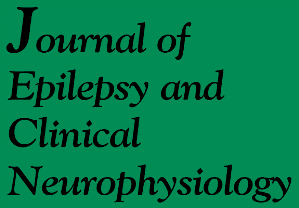PURPOSE: Controversy persists whether generic antiepileptic drugs (AEDs) are interchangeable with brand name and similar drugs regarding efficacy and adverse events. This issue is very relevant and still more important in underdeveloped countries with limited health expenditures. METHODS: After Ethical Committee approval the "Associação Brasileira de Epilepsia" applied a questionnaire for people with epilepsy (PWE) with multiple-choice questions: four about sociodemography and 14 regarding formulations knowledge (reference, generic and similar drugs) and clinical change evidence during AED formulation switch (Fisher test, level 05%). RESULTS: 731 PWE from six Public System Hospitals participated being 91% from middle/low income classes; from the PWE older than 18yrs. 24.4% had less than 4 yrs. of education, 24.4% between 5 and 8, 45.6 % had at least 9 yrs. of schooling; 63% received more than one AED (53.3% carbamazepine, 26.3% sodium valproate); 58.1% obtained AEDs from public resources and 21.2% only in private pharmacies. From the 731 PWE, 60.6% did not know the existence of different AED formulations (more educated PWE, high income classes responded more correctly, p<0.001); only 36% knew that the first produced drug is the reference (more educated, p<0.001) and 10% considered generics "official governmental drugs". After instructed about formulations, 24.7% ignored generics are cheaper than reference drugs, 32.5% considered their quality worse and only 30% knew their packing details (high income classes, p=0.004). During the last year, 25.6% received different formulations (mainly carbamazepine, sodium valproate) and 14.5% (especially lower educated, p<0.001) referred breakthrough seizures after switching (carbamazepine, sodium valproate, lamotrigine) and 12.2%, increased side effects (carbamazepine, sodium valproate, topiramate). CONCLUSIONS: Different formulations knowledge was small among the interviewed PWE and there was frequent AED formulation switching; breakthrough seizures (14.5%) and increased side effects (12.2%) occurred when the change was done. This fact should alert specialists, especially in underdeveloped countries that AEDs should be considered a special group regarding generics and similar drugs public politics.
Adverse events; antiepileptic drugs; bioequivalence; brand names; epilepsy; generics; people with epilepsy; seizures; substitution; survey





